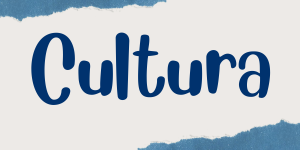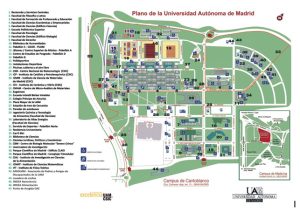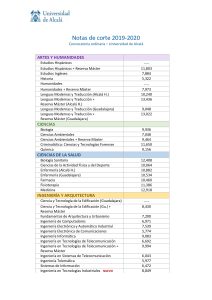Cultura: La univerdad

In this section you will learn about how the school system works specifically in Spain. Each Spanish speaking country has their own school system, and they may not be the same.
In Spain the education system is very different to the one in the United States. School starts at 2 years old. Of course it is more as a daycare, but children are taught the letters and other skills needed to succeed in kindergarten. Once a student as completed elementary school (educación primaria), students move one to la E.S.O (Educacón Secundaria Obligatoria) or secondary school, there, students finish their studies at what the equivalent would be a sophomore in high school. Once graduated, each student has to decide what to do next, or do Bachillerato, the last two years of high school, or attend a professional trade school.

If a student chooses a trade school, they would complete a trade and get a job. If the student choose to “finish high school”, the student would finish 2 years of studies focusing on the university trajectory that they choose. For example, if a student declares that they are going

to study something related to science, the courses these two years would focus more on the science path. If a student declares a more humanity path, their classes would focus more on humanity classes. There are class exceptions. Students on either trajectory need to study basic classes such as math, literature and basic science classes.
Once once finishes Bachillerato, the student need to take a comprehensive test, similar to an ACT or SAT. Depending on their grade (1-12 points), they are able to choose a degree or career within that grade. For example, if one earns a 5, one cannot became a doctor, they are able to choose another career.
DISCUSSION
After reading how the Spanish school system works, search about a different Spanish country’s school system and compare them to the Spanish system and the system that you studied in.
- what are they main differences?
- What do you like best about yours?
- What do you like less about yours?
- What is the most interesting thing you discovered?
Licensing and Attribution:
Cultura content on this page was remixed from Español por el mundo by Gemma Morawski and Ani Alcocer, licensed under a Creative Commons Attribution 4.0 International License.
